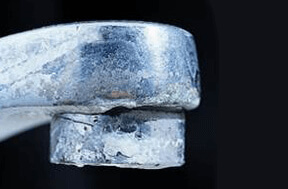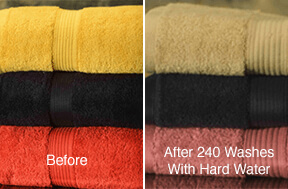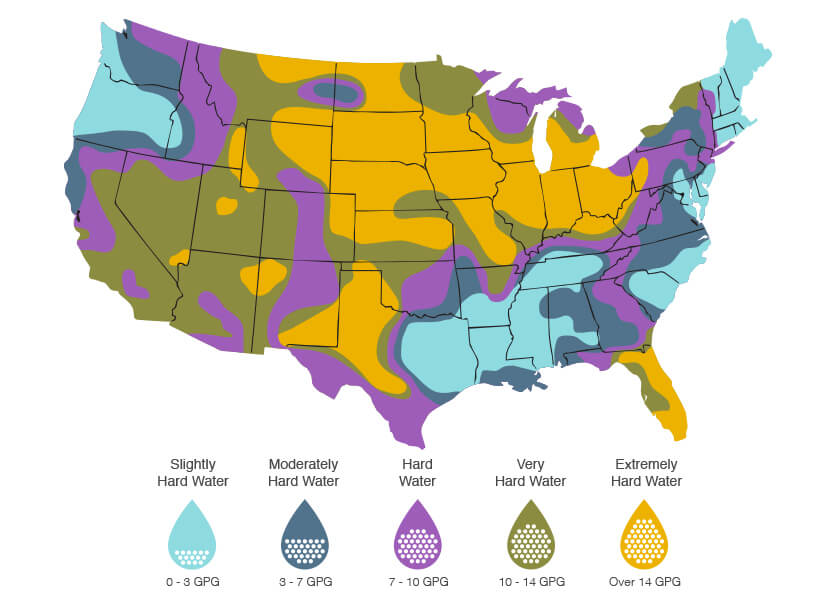Let’s Talk About the Hard Facts
What is hard water?
You may be wondering what is in hard water, and why it might be an issue in your home. Hard water is water that has a high mineral content.
What does hard water contain?
- Calcium
- Magnesium
- Trace amounts of other minerals
It’s a natural result of minerals like calcium and magnesium accumulating during the water cycle, and it can happen with well water and even city water. The more calcium and magnesium dissolved in the water, the harder the water becomes. This is why certain cities and counties within the same state can have varying degrees of water hardness.
Hard water is safe to drink and wash with, but over time it can lead to inconvenient, embarrassing and costly problems like:
- Ugly stains in sinks and tubs
- Higher water bills because water appliances work harder
- The cost of replacing clothes and linens ruined by hard water


What are the signs of hard water?
- White, chalky residue or spots on dishes and in your dishwasher
- Clothes and linens that feel rough and look dull
- Scale buildup on faucets and ugly stains on white porcelain
- Dry skin and flat hair – because soap just doesn’t lather or rinse completely away
- Low water pressure from showers and faucets due to clogged pipes
Find your hard water level
85% of American homes have hard water – water that contains high levels of calcium and magnesium. Water hardness is measured in GPG (grains per gallon). The map below shows just how water hardness varies across the country. Even if you don’t live in the “very hard” or “extremely hard” water zones, you may start to see the effects of hard water at around 7 grains of hardness.
Your water hardness level can be found by contacting your municipality, if you are on city water, or by picking up a water hardness test kit from your nearest retailer.
